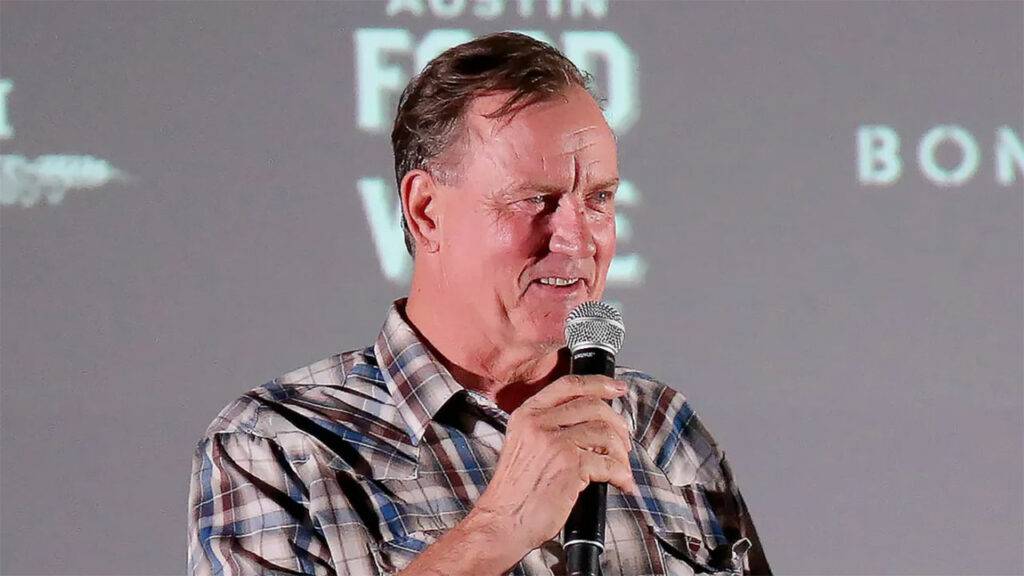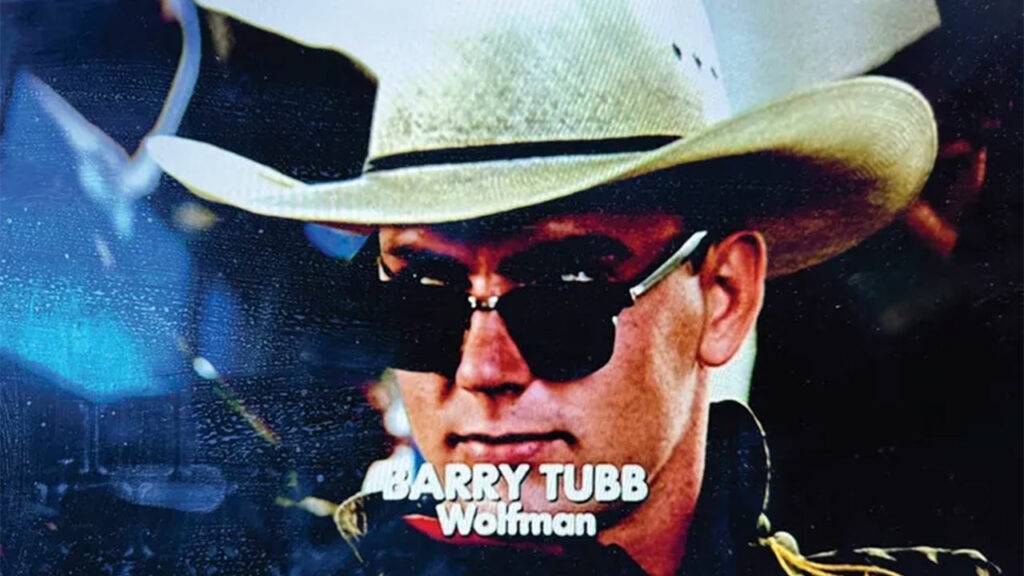In a surprising turn of events, Top Gun actor Barry Tubb, known for his role as Wolfman in the 1986 blockbuster, has filed a lawsuit against Paramount Pictures. Tubb alleges that the studio improperly used his image in the hit 2022 sequel, Top Gun: Maverick, without his consent.
This legal battle raises questions about the rights of actors regarding the use of their likenesses in sequels and the extent of contractual agreements.

Top Gun actor Barry Tubb sues Paramount Over Use of His image in Sequel
Barry Tubb’s legal complaint, filed in a California court, contends that his original agreement with Paramount did not include authorization for the use of his image in any sequels.
The specific scene in question involves characters Hangman (Glen Powell) and Coyote (Greg Tarzan Davis) stumbling upon an old photo featuring Iceman (Val Kilmer), Goose (Anthony Edwards), Maverick (Tom Cruise), and Wolfman.
According to Tubb, this image is a “four-shot close-up establishing plaintiff,” and its use in the sequel was not part of the original contractual understanding.

Barry Tubb Wolfman Photo
The actor further claims that the photo used in the movie is an altered version of a behind-the-scenes shot of the original actors. Tubb argues that these alterations have “destroyed any purported copyright” to the image.
The complaint emphasizes that Paramount did not seek permission or authority to use Tubb’s image in Top Gun: Maverick, going beyond the scope of the initial contract signed almost four decades ago.
Barry Tubb Lawsuit
Paramount has yet to respond officially to the allegations. Tubb’s complaint accuses the studio of misleading and deceptive conduct by falsely representing his affiliation with Top Gun: Maverick. The lawsuit asserts that Tubb was neither contracted nor hired to participate in the sequel or its promotional activities.
Legal Action and Damages
Barry Tubb is seeking unspecified compensatory and punitive damages from Paramount, underlining the economic gain the studio has made by using his image without compensation.
The actor insists that the contract signed in 1985 did not anticipate the production of sequels, making the unauthorized use of his likeness a violation of their agreement. The legal documents also reveal Tubb’s demand for a trial by jury.
Paramount’s Economic Windfall
The legal dispute sheds light on the evolving landscape of contracts in the entertainment industry, especially concerning sequels and the extended use of actors’ likenesses. Tubb’s argument that Paramount gained an “economic windfall” at his expense raises questions about the responsibilities of studios to secure consent for such uses.
The Impact on Top Gun: Maverick
Top Gun: Maverick, directed by Joseph Kosinski and headlined by Tom Cruise, achieved significant success at the box office, grossing $1.495 billion worldwide. However, the legal battle with Barry Tubb may have broader implications for the film industry, forcing studios to reassess their practices regarding the use of actors’ images in sequels.
Conclusion
Barry Tubb’s lawsuit against Paramount brings to light the complexities surrounding the use of actors’ images in sequels, challenging the industry’s conventional practices. As the legal battle unfolds, it may set a precedent for how studios navigate contracts and permissions in the evolving landscape of film production.
Paramount’s response and the court’s decision will undoubtedly shape future agreements and considerations for actors featured in iconic films revisited in sequels.



